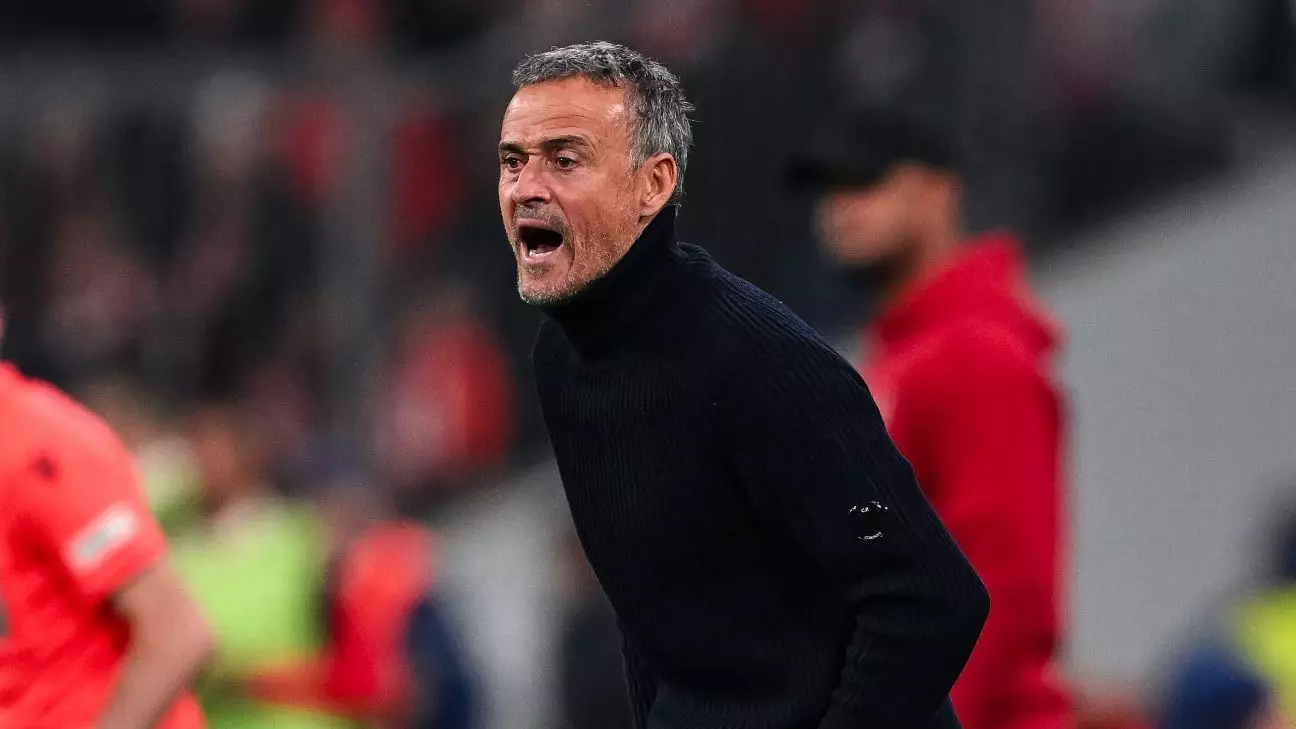Paris Saint-Germain (PSG) recently faced a difficult defeat at the hands of Bayern Munich in the UEFA Champions League, a setback that has put increased pressure on coach Luis Enrique. The match revealed not only the fragility of the team’s performance but also the weight of responsibility that falls on the shoulders of its management. Enrique’s reaction to the loss encapsulates a broader issue within the elite sports environment: the need for accountability amidst adversity. Acknowledging failures openly, as Enrique did, is an essential quality of effective leadership.
The match turned pivotal when Ousmane Dembélé received a red card just after the hour mark, leaving PSG to battle against a formidable opponent with only ten players. The challenge of competing in such circumstances highlights not just the tactical adjustments that need to be made—but also raises questions about player discipline and the overarching team mentality. Dembélé’s dismissal was not just a misstep; it became emblematic of deeper issues within the squad that could hinder their performance in high-stakes moments.
Enrique’s response to the loss was strikingly candid. By deflecting blame from players and acknowledging his own part in the defeat, he demonstrates a level of humility and self-awareness that is often absent in the world of coaching. “If there is anyone to blame, it is me,” he asserted, embodying the ethos of a leader willing to confront discomfort and challenge. Such transparency can foster a more cohesive environment, encouraging players to take risks without fear of scapegoating when things go wrong.
Following the loss, it became painfully evident that PSG’s position in the Champions League is tenuous at best. With only one win from their last four outings, the spectacular squad has struggled to translate individual talent into cohesive team performance. This poor form not only proves problematic in the context of European competition but also has implications for the remainder of their domestic campaign. As the Ligue 1 leaders grapple with their Champions League ambitions, they must also face the unsettling truth of their recent performances.
Enrique’s admission about the lessons learned from these defeats indicates he is not merely lamenting missed opportunities but is also contemplating significant changes going forward. His reflection on player suitability and future strategies speaks to a coach who is geared towards long-term success rather than complacency. Such introspection may open the door for enhancements in player recruitment and development, paving the way for a more resilient and competitive PSG.
The loss to Bayern Munich offers more than just a scoreline; it is a critical moment of reflection for Luis Enrique and his squad. As they navigate this turbulent period, their willingness to confront failures and adapt will ultimately determine their trajectory in the seasons to come. Accountability, as demonstrated by Enrique, is not merely a reactive stance but a cornerstone for achieving greatness in football.

